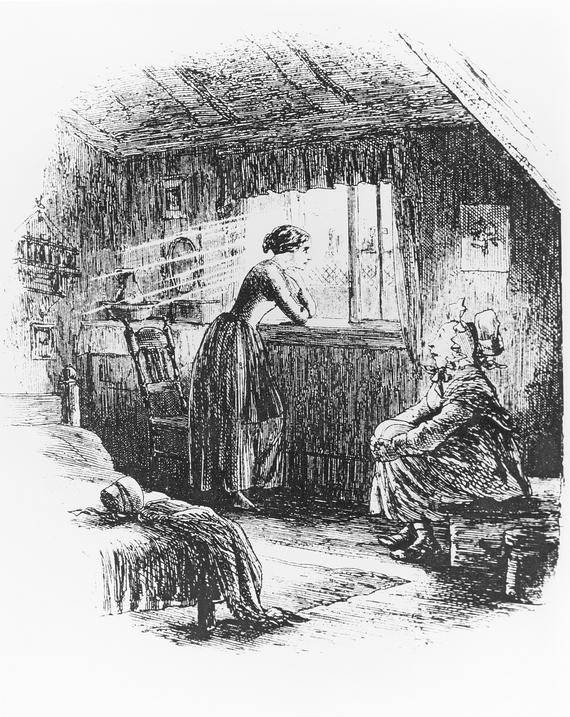 "I have an idea that the only thing which makes it possible to regard this world we live in without disgust is the beauty which now and then men create out of the chaos. The pictures they paint, the music they compose, the books they write, and the lives they lead. Of all these the richest in beauty is the beautiful life. That is the perfect work of art."
"I have an idea that the only thing which makes it possible to regard this world we live in without disgust is the beauty which now and then men create out of the chaos. The pictures they paint, the music they compose, the books they write, and the lives they lead. Of all these the richest in beauty is the beautiful life. That is the perfect work of art."English playwright, novelist, and short-story writer W. Somerset Maugham was one of the most popular writers of his era and reported to be the highest paid author during the 1930s. 15 years separate his two most celebrated works, Of Human Bondage (1915) and Cakes and Ale (1930). Wedged between these novels, are his two "exotic" novels, one of which is set in the mysterious and foreign land of 1920s China. The Painted Veil is a story of love, betrayal, revenge, personal growth, and sacrifice.
The Plot:
Kitty is a shallow, vain young woman living in London in the 1920s. She meets Dr. Walter Fane, a bacteriologist on leave from Hong Kong. He falls madly in love with her and though she feels nothing for him (except contempt), she agrees to marry him in order to escape her family, especially her overbearing and overachieving mother. Once in Hong Kong, Kitty finds the social life (and her life with Walter) very boring. She falls in love with the married Assistant Colonial Secretary Charles Townsend and begins an affair with him. When a devastated Walter discovers their affair, he gives Kitty an ultimatum- either she must accompany him to work in a remote cholera-stricken village, or he will divorce her, causing a great scandal, unless Townsend agrees to marry her.
After betrayal by Townsend, Kitty agrees to travel to the village with Walter. At first, she is very bitter and distressed regarding her situation. Then, she meets the cynical Waddington, a British government worker living in the village, as well as a small convent of French nuns who run the orphanage and hospital. Through her interaction with them, Kitty's eyes begin to open to the purpose that has been missing from her life, and to realize just what kind of man she has married, and scorned.
My Review (Caution-Spoilers):
This is my second Maugham work, the first being his short story collection Ashenden: or The British Agent. Like that work, Maugham is not really concerned about the setting of The Painted Veil, but rather the human nature of the characters that populate it. One would think that 1920s China would provide ample material for reflection on cultural differences, uprising against British rule , and the true poverty of colonial Chinese life. But while each of these receives a nod, this is really Kitty's story.
Kitty is not an easy character to like. In fact, I'm going to say that it is impossible. She is brought up by her mother with only one goal, to get married and move up the social ladder. Consequently, Kitty grows into a flippant, vacuous, self-satisfied young woman. The funny thing is that Walter knows all this, and loves her anyway. There is a great quote in the book where he lays this out for her. Perhaps what makes this story so maddening is Kitty's feelings towards Walter. At first, she can only feel contempt for his love, and then pity for his sorrow. It was so difficult to see Kitty despise him when I was beginning to fall for the passionate man with the calm and cool exterior.
None of this is to say that Kitty does not grow in the book, because she does. Not that she suddenly becomes this selfless and wise woman, but she does recognize her own failings and sets a course for reconnecting with another man whose provision and protection she had once despised, her father. She also recognizes how much of her own character stemmed from the fact that her life lacked purpose. Yes, she had married as her mother wished, but that had not fulfilled her in and of itself. It is neat to see her interaction with the French nuns. Here are a group of women who have never married, and if anything have gone down the social ladder, and yet their life is full and complete. Their work, not their status, gives them fulfillment. It is clear that her resolve to raise her child in a better atmosphere stems more from her friendship with the nuns than from any other area.
The Painted Veil is a well-written, approachable, and at times heart-wrenching look at the human life. The title of the book comes from a sonnet by Shelley that says "Lift not the painted veil which those who live / Call Life", and yet that is exactly what Maugham does. He removes the veils and masks that cover us and forces to stare at our own natures, and to realize our own shortcomings. It is a call for each of us to focus, not on what we perceive our own happiness to be, but to achieve that "beautiful life" that can bring so much happiness and pleasure to those around us. I highly recommend it.
The Movie:
There are 2 main versions of this film. The first is the 1934 version starring Greta Garbo and Herbert Marshall. I have not seen this version, but from what I have read it seems that names and plot suffer quite a bit.
The other is the 2006 version starring Naomi Watts, Edward Norton and Diana Rigg. This is the version that got me interested in the story. It's a fairly decent movie, and it follows the book for the most part. The important thing to remember is that though the book and the film have the same plot, they are not telling the same story. Whereas the book is focused on Kitty's personal growth, the film concerns itself with the complications of Kitty and Walter's relationship. Thus you will probably find the film to be more romantic and the ending to be more "satisfying" than the book. Worth a watch, just don't expect the book to have the same feel.
The Plot:
Kitty is a shallow, vain young woman living in London in the 1920s. She meets Dr. Walter Fane, a bacteriologist on leave from Hong Kong. He falls madly in love with her and though she feels nothing for him (except contempt), she agrees to marry him in order to escape her family, especially her overbearing and overachieving mother. Once in Hong Kong, Kitty finds the social life (and her life with Walter) very boring. She falls in love with the married Assistant Colonial Secretary Charles Townsend and begins an affair with him. When a devastated Walter discovers their affair, he gives Kitty an ultimatum- either she must accompany him to work in a remote cholera-stricken village, or he will divorce her, causing a great scandal, unless Townsend agrees to marry her.
After betrayal by Townsend, Kitty agrees to travel to the village with Walter. At first, she is very bitter and distressed regarding her situation. Then, she meets the cynical Waddington, a British government worker living in the village, as well as a small convent of French nuns who run the orphanage and hospital. Through her interaction with them, Kitty's eyes begin to open to the purpose that has been missing from her life, and to realize just what kind of man she has married, and scorned.
My Review (Caution-Spoilers):
This is my second Maugham work, the first being his short story collection Ashenden: or The British Agent. Like that work, Maugham is not really concerned about the setting of The Painted Veil, but rather the human nature of the characters that populate it. One would think that 1920s China would provide ample material for reflection on cultural differences, uprising against British rule , and the true poverty of colonial Chinese life. But while each of these receives a nod, this is really Kitty's story.
Kitty is not an easy character to like. In fact, I'm going to say that it is impossible. She is brought up by her mother with only one goal, to get married and move up the social ladder. Consequently, Kitty grows into a flippant, vacuous, self-satisfied young woman. The funny thing is that Walter knows all this, and loves her anyway. There is a great quote in the book where he lays this out for her. Perhaps what makes this story so maddening is Kitty's feelings towards Walter. At first, she can only feel contempt for his love, and then pity for his sorrow. It was so difficult to see Kitty despise him when I was beginning to fall for the passionate man with the calm and cool exterior.
None of this is to say that Kitty does not grow in the book, because she does. Not that she suddenly becomes this selfless and wise woman, but she does recognize her own failings and sets a course for reconnecting with another man whose provision and protection she had once despised, her father. She also recognizes how much of her own character stemmed from the fact that her life lacked purpose. Yes, she had married as her mother wished, but that had not fulfilled her in and of itself. It is neat to see her interaction with the French nuns. Here are a group of women who have never married, and if anything have gone down the social ladder, and yet their life is full and complete. Their work, not their status, gives them fulfillment. It is clear that her resolve to raise her child in a better atmosphere stems more from her friendship with the nuns than from any other area.
The Painted Veil is a well-written, approachable, and at times heart-wrenching look at the human life. The title of the book comes from a sonnet by Shelley that says "Lift not the painted veil which those who live / Call Life", and yet that is exactly what Maugham does. He removes the veils and masks that cover us and forces to stare at our own natures, and to realize our own shortcomings. It is a call for each of us to focus, not on what we perceive our own happiness to be, but to achieve that "beautiful life" that can bring so much happiness and pleasure to those around us. I highly recommend it.
The Movie:
There are 2 main versions of this film. The first is the 1934 version starring Greta Garbo and Herbert Marshall. I have not seen this version, but from what I have read it seems that names and plot suffer quite a bit.
The other is the 2006 version starring Naomi Watts, Edward Norton and Diana Rigg. This is the version that got me interested in the story. It's a fairly decent movie, and it follows the book for the most part. The important thing to remember is that though the book and the film have the same plot, they are not telling the same story. Whereas the book is focused on Kitty's personal growth, the film concerns itself with the complications of Kitty and Walter's relationship. Thus you will probably find the film to be more romantic and the ending to be more "satisfying" than the book. Worth a watch, just don't expect the book to have the same feel.

















